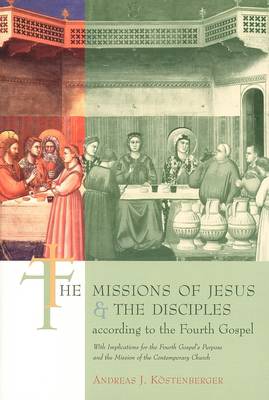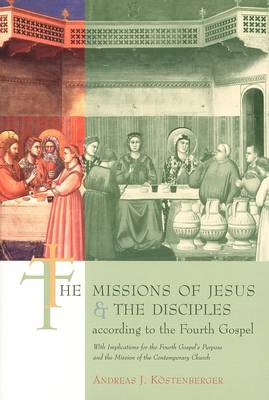
Bedankt voor het vertrouwen het afgelopen jaar! Om jou te bedanken bieden we GRATIS verzending (in België) aan op alles gedurende de hele maand januari.
- Afhalen na 1 uur in een winkel met voorraad
- In januari gratis thuislevering in België
- Ruim aanbod met 7 miljoen producten
Bedankt voor het vertrouwen het afgelopen jaar! Om jou te bedanken bieden we GRATIS verzending (in België) aan op alles gedurende de hele maand januari.
- Afhalen na 1 uur in een winkel met voorraad
- In januari gratis thuislevering in België
- Ruim aanbod met 7 miljoen producten
Zoeken
The Missions of Jesus and the Disciples according to the Fourth Gospel, with Implications for the Fourth Gospel's
Andreas Kostenberger
Paperback | Engels
€ 47,45
+ 94 punten
Omschrijving
This important work explores in depth the relationship between the mission of Jesus and of the disciples as presented in the Gospel of John, and explores the implications of these findings for the contemporary church. Based on a comprehensive semantic field of study that integrates biblical studies, theology, and missiology, this volume represents the first time such an approach has been used for the study of mission in John. Andreas Köstenberger begins by surveying the state of research on mission in the Fourth Gospel, then covers foundational linguistic, definitional, and literary matters. The following two chapters contain the actual study of the missions of Jesus and the disciples. In discussing the disciples' mission, special attention is given to the question of how later generations of disciples should be related to Jesus' original followers. The volume concludes with a chapter on the implications of Köstenberger's findings for the Fourth Gospel's purpose and for the mission of the contemporary church. Köstenberger engages missiological constructs based on the Fourth Gospel, including the so-called "incarnational model" of mission, and concludes that this model is seriously flawed and should be replaced by a "representational model" of mission that views Jesus' followers as his representatives, who do not share in the theologically unique aspects of his incarnation.
Specificaties
Betrokkenen
- Auteur(s):
- Uitgeverij:
Inhoud
- Aantal bladzijden:
- 287
- Taal:
- Engels
Eigenschappen
- Productcode (EAN):
- 9780802842558
- Verschijningsdatum:
- 23/12/1997
- Uitvoering:
- Paperback
- Formaat:
- Trade paperback (VS)
- Afmetingen:
- 159 mm x 235 mm
- Gewicht:
- 421 g

Alleen bij Standaard Boekhandel
+ 94 punten op je klantenkaart van Standaard Boekhandel
Beoordelingen
We publiceren alleen reviews die voldoen aan de voorwaarden voor reviews. Bekijk onze voorwaarden voor reviews.









